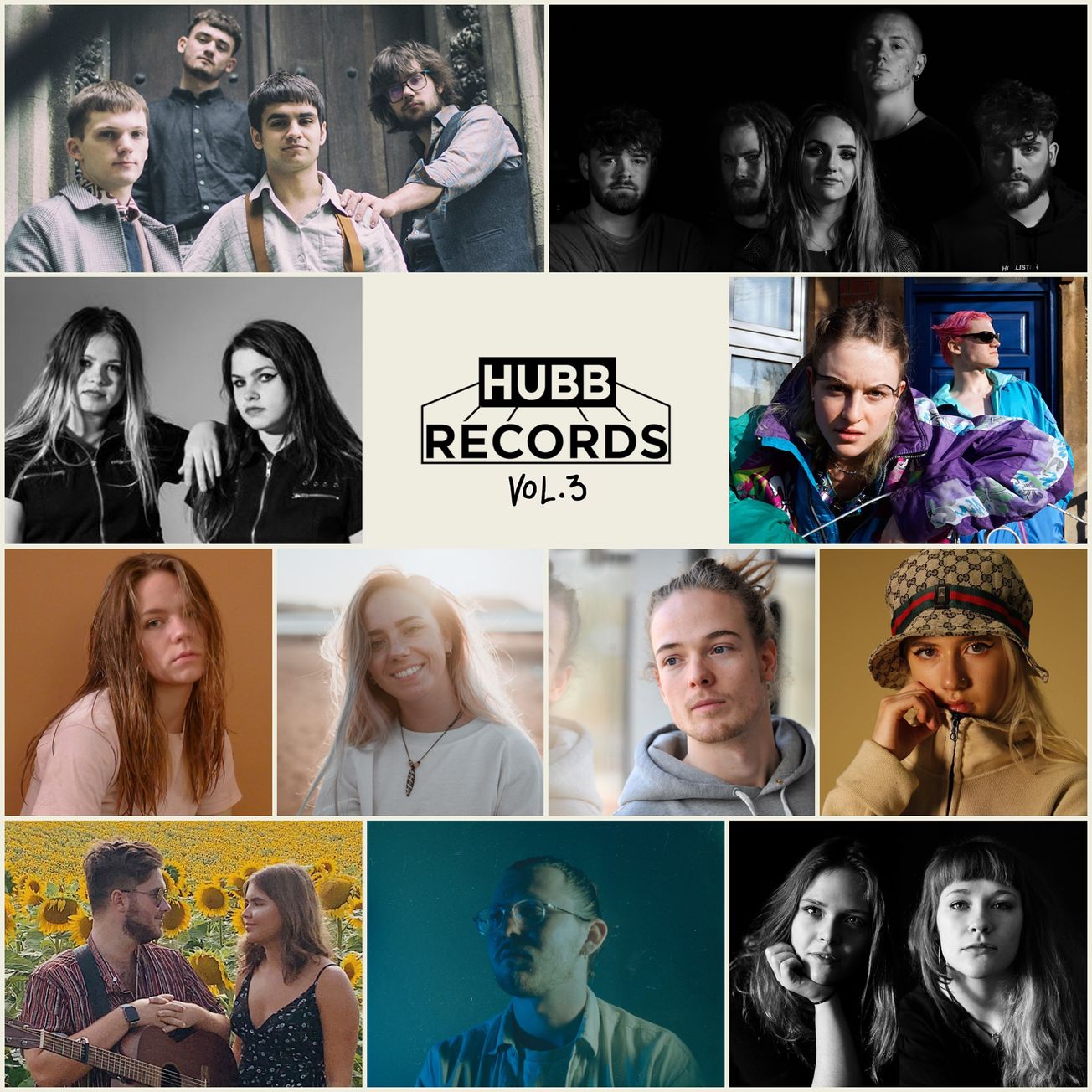By Lauren Paddison, Digital Music Editor
If you’re interested in student music, you’ll doubtless have heard of BIMM Institute (British and Irish Modern Music). The music college has campuses in music hubs across the UK and Europe and boasts plenty of famous alumni; artists such as George Ezra, James Bay, Tom Odell, Fickle Friends, and IDLES’ Jon Beavis were all formerly enrolled. As a springboard for young talent, BIMM Bristol campus is no exception.
HUBB Records, established 2018, is a record label run by and for students at BIMM Bristol. Label manager Eva Lepikov spoke to Epigram Music about the beginnings of HUBB – ‘Each BIMM campus has their own annual album project, which is a part of BIMM’s strategy to support and offer professional opportunities to students. Bristol’s campus decided to develop that idea and put together a label that’s run by students. So essentially, it’s a way for students to gain experience in both working for a label and being signed to one. This year is Volume III of HUBB Records, so I’d say it’s still a fairly new project.’
The label’s PR manager, Summer Bolitho, also spoke to us about the unique benefits that separate them from larger labels – ‘HUBB possibly came together quicker than a stereotypical record label. BIMM have been able to provide financial backing for our artists and the facilities that they need for a release, such as studios and producers. It also meant that we didn’t have to go artist scouting as a lot of people had heard about HUBB and were interested in getting involved.’
For those not familiar with the inner workings of the music industry, it can sometimes be hard to establish what role a record label plays in the wider music world. ‘Traditionally record labels were, and to an extent still are, gatekeepers’, says Lepikov; ‘In the traditional music industry, they had the money, the contacts and the power to either make or break an artist. A record label will invest in an artist financially, but also their time and efforts, to give the artist the best means to reach their goals.’
Lepikov also remarks on the differences between types of record labels, commonly divided as majors or independents – ‘Majors are the ones with huge resources and power, which is what some artists want and need. Indies can offer other benefits, such as a very personal approach and more creative development.’
After 3 weeks of announcements, we finally have our full roster of Vol.3 artists. We can’t wait to showcase this...
Posted by HUBB Records on Friday, 22 May 2020
‘Releasing music often requires quite a bit of money and other resources, such as access to studios and industry contacts: it’s where record labels often have a massive advantage.
Independents like HUBB combine the best of both worlds, by giving the artist the means to be their most authentic self and not taking away creative control, but offering assistance and support in any way they can.’
As streaming services have taken over, the revenues gained from putting out a record have fallen sharply. This, coupled with an artist’s greater ability to independently release content, means that the role of record labels has been somewhat diminished. Yet, Bolitho maintains that independent labels are of crucial importance:
‘They’re important because being signed to a label can be the difference between an artist making a living from their music, and an artist struggling to get their music played. This is what is especially great about independent labels: they really do support people’s journey’s and listen to what an artist wants. It’s great for HUBB because there will always be artists at BIMM who stand out and really should be getting their music heard.’
Indie-folk on the rise: In conversation with Bristol's Scarlett Loran
Girl-rock, ‘Scene’ culture and how lockdown changed her Life. In Conversation with Ziggy 2000
Having the support of a label is especially important now; It’s a gloomy time to be involved with music and entertainment, and Lepikov is understanding: ‘it’s very worrying foreveryone that understands the importance of live music.’ Running the label hasn’t been easy, adds Bolitho – Studio sessions and photoshoots, both essential for promoting an artist, have been delayed indefinitely, and meetings have all been online since lockdown began in March. ‘I’m immensely proud of our team this year’, says Lepikov. ‘I’ve witnessed a bunch of almost strangers becoming good friends over Zoom over the past eight months, step by step working towards a common goal.’ There’s somewhat of a silver lining, too: ‘it is exciting to see music consumption going up and vinyl and merch sales still doing well. And the industry has been adapting to new technologies and coming up with creative ways to share musical experiences.’
With so many students at BIMM Bristol, HUBB records only takes the best. ‘We look for artists that stand out, that offer something fresh and interesting’ says Bolitho. ‘This year we purposefully chose a mixture of genres, as we thought it would be important to showcase a variation of styles and cater to wider audiences.’ Lepikov adds, ‘applications for HUBB Records are open to everyone that studies at BIMM. The applications also go around various industry professionals, but eventually the choice is up to the team. We don’t just consider where the artist is at the point of the application, but we look at artists’ potential – how unique they are and how much motivation they display.’

‘HUBB is all about development and we’re there to give everyone, no matter of their current position the chance to be amplified and given a little push that they need to kick start their careers. We try to come up with a roster that is as diverse as possible as well.’
Staying true to the ethos of the label, Bolitho establishes diversity and individualism as key factors in all elements of production; ‘I think that the future of HUBB will show that even more than this year's volume III. This year we’re working with Folk and Drum & Bass to Lo-Fi and Indie, so we’re not limiting ourselves at all. I would say that determination and talent unites them, especially this year, seeing as things really have been tougher than previous due to lockdown restrictions.’
Recognising the importance that the city of Bristol has in the larger UK music scene, Bolitho mentions how privileged she feels to be working in the very heart of it; ‘Bristol has always been known for its collective community spirit, and that really follows through into HUBB. I think this definitely resonates and is why so many people want to move here to study music’.
Lepikov admits she didn’t know much about the city’s history before moving to Bristol not too long ago, apart from the fact there’s ‘a lot of drum & bass’. She describes Bristol as the ‘most welcoming city’ - ‘Being involved in the music community of Bristol is the best way to get to know it’.
Truly, there’s plenty more music to discover - Hubb isn’t the only indie label in Bristol, and Bolitho lists a few of her favourites; ‘SUDO Sound are a wicked 140 (BPM D&B) label, Mangoes & Melons for garage heads or F-LOOPS for underground house and techno. For percussion fiends, Worm Disco Club are definitely one to check out.’ Lepikov also recommends Saffron – ‘a label and social initiative committed to tackling gender imbalance in the industry’ and Stokes Croft favourite Idle Hands – ‘a well-loved record store but also a label.’
HUBB still has a long way to go, says Lepikov - What I’d love to see is for more artists to apply, so we could even more accurately showcase the diversity that BIMM and Bristol have to offer.’ Hubb Records volume III is out now. Stay tuned for Volume IV.
Featured: HUBB Records
Have you supported music students?








